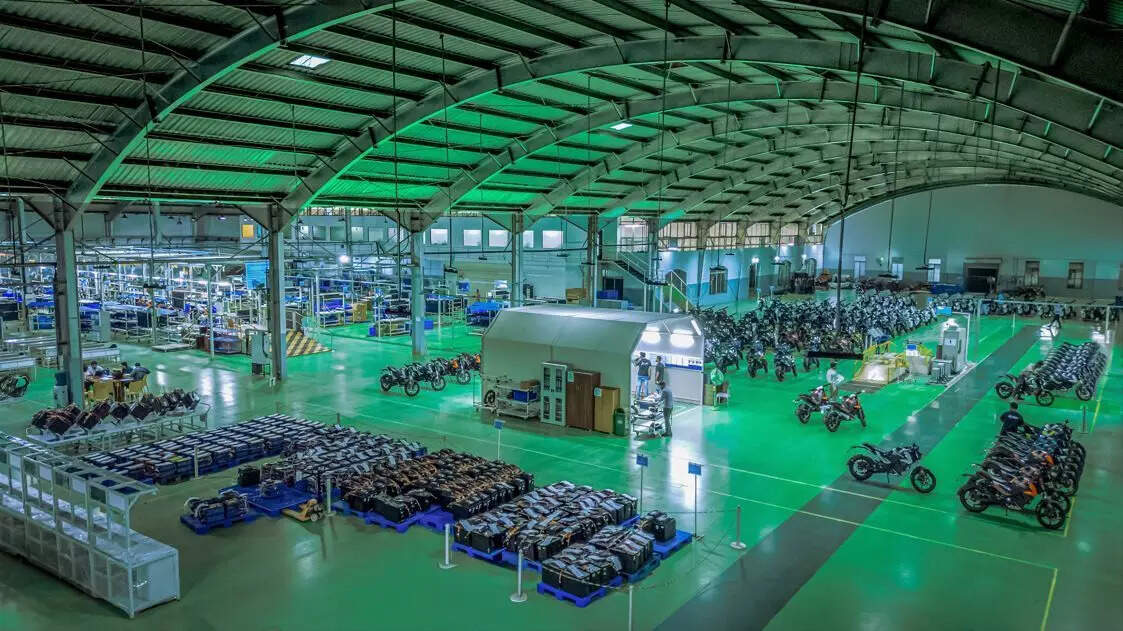[ad_1]

In a landscape crowded with electric scooter startups and import-reliant assemblers, Oben Electric is charting its own route—one grounded in vertical integration and domestic engineering. Founded in 2020, the Bengaluru-based EV motorcycle manufacturer is not just building bikes but also laying the foundation to potentially supply parts to other original equipment manufacturers (OEMs), thanks to its in-house manufacturing prowess.
“Most companies don’t own their sales outlets. They don’t own their service outlets. They don’t own their supply chain. They don’t own their software. They don’t own their hardware,” said Madhumita Agrawal, founder and CEO, Oben Electric. “Our approach has been very, very different from day one. We’re trying to do everything ourselves.”
From motors and batteries to chargers and frames, Oben Electric designs and builds nearly every critical component in-house. The company has already deployed over 1,500 vehicles on Indian roads since it began deliveries in July 2023, and is now scaling up its second model lineup, the Oben Rorr EZ.
Full-stack EV manufacturing
At the heart of Oben Electric’s differentiation is its 3.5-acre vertically integrated facility in Jigani, Bengaluru. The plant currently operates at a capacity of 40,000 vehicles annually in a single shift, expandable to 1,00,000 units across three shifts. Last month, the company produced 500 vehicles, with plans to cross 600 this month.
Every vehicle undergoes a 52-point quality check, and the company boasts a 95 per cent straight-pass ratio—an impressive feat for a relatively new entrant.
According to Agrawal, “Vertical integration is necessary. That’s how you control quality, costs, and customer experience. It’s what allows us to fix a problem within two days—or even faster.”
Positioning for scale—and for B2B opportunities
With 36 showrooms across 24 cities in 12 states, Oben Electric is targeting over 150 showrooms by the end of FY26. But even as it scales its retail footprint, it is also quietly laying the groundwork to become a supplier to other EV players.
The company manufactures its own high-performance LFP batteries, motors, vehicle control units, frames, and even home fast chargers. These are proprietary designs, aimed at boosting performance, safety, and modularity.
Oben’s LFP batteries, for instance, offer twice the heat resistance and lifespan of conventional NMC batteries and are also 20 per cent cheaper, thanks to lower cooling requirements and cobalt- and nickel-free construction, explained Agrawal.
“Once you’ve built quality, cost-effective products for yourself, it opens up a natural extension into the parts supply business.”
A motorcycle-first philosophy
Unlike most EV startups that focus on scooters, Oben Electric has chosen to go after India’s vast motorcycle market—a segment still largely underserved in the electric space.
“Motorcycle consumers are very stubborn… They will not compromise,” Agrawal says. “They want style, ruggedness, utility, and affordability—especially in Tier 1 and Tier 2 cities. This is an untouched, untapped big market.”
Oben’s flagship Rorr starts at ₹1,49,999, while its newer Rorr EZ model starts at ₹89,999. According to the company, 50 per cent of showroom visitors convert to buyers, and 76 per cent of bookings are retained—well above the industry average.
Ready for the long haul
Oben Electric has raised ₹150 crore to date and currently employs over 500 people. It plans to grow headcount in the coming fiscal to support both new vehicle launches and scale-up initiatives, including a rural-specific motorcycle platform akin to the Hero Splendor.
For now, the company is focused solely on domestic expansion but will begin exploring international markets such as Africa and the Middle East starting in 2025.
With India also inching toward domestic LFP cell manufacturing, Oben stands to benefit from early adoption of the chemistry. “We’re already working with Indian companies to co-develop and test cells. This gives us independence from imports and even greater control over our product.”
In a market where many players are still assembling parts from China, Oben’s approach may not just win it customers—but competitors too.
[ad_2]
Source link





